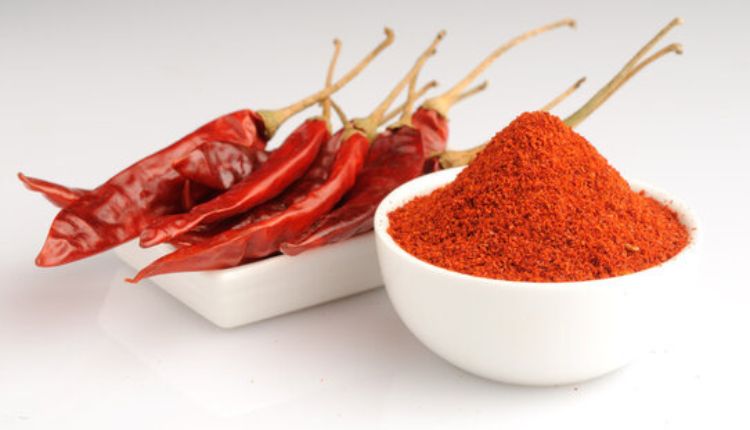Introduction:
Red chilli, scientifically known as Capsicum annuum, is a popular spice known for its fiery flavor and vibrant red color. It is widely used in cuisines around the world and has gained recognition not just for its taste but also for its numerous health benefits. In this article, we will delve into the diverse uses, potential advantages, and possible side effects of red chilli, providing you with a comprehensive understanding of this versatile ingredient.
I. The Culinary Versatility of Red Chilli:
Red chilli is an integral part of many culinary traditions globally. It adds a distinctive flavor and a delightful heat to various dishes, ranging from Indian curries and Mexican salsas to Thai stir-fries. The active component responsible for the fiery sensation in chillies is capsaicin, which triggers the release of endorphins and provides a unique sensory experience.
II. Health Benefits of Red Chilli:
- Weight Management: Red chilli has been linked to weight management due to its thermogenic properties. It boosts metabolism, increases fat oxidation, and helps control appetite, making it an excellent addition to a balanced diet.
- Pain Relief and Inflammation: The capsaicin present in red chilli acts as a natural pain reliever and anti-inflammatory agent. It is commonly used topically to alleviate muscle and joint pain, including conditions like arthritis.
- Cardiovascular Health: Red chilli consumption has been associated with a reduced risk of cardiovascular diseases. Capsaicin aids in lowering cholesterol levels, improving blood circulation, and preventing the formation of blood clots.
- Digestive Health: Red chilli stimulates the secretion of digestive enzymes, promoting efficient digestion and aiding in the prevention of digestive disorders. It also possesses antibacterial properties that can combat harmful bacteria like H. pylori.
- Immune System Support: The high content of vitamins A and C in red chilli strengthens the immune system, helping the body fight against infections and diseases.
III. Potential Side Effects of Red Chilli:
- Gastrointestinal Discomfort: In some individuals, consuming red chilli can lead to gastrointestinal discomfort, including heartburn, stomach pain, and diarrhea. People with pre-existing conditions like irritable bowel syndrome (IBS) may be more susceptible to these effects.
- Skin Irritation: Direct contact with red chilli or its extracts may cause skin irritation and burning sensations. It is crucial to handle chillies with caution and avoid touching sensitive areas like the eyes or face after handling them.
- Allergic Reactions: While rare, some individuals may experience allergic reactions to red chilli. Symptoms may include itching, hives, swelling, and difficulty breathing. If you suspect an allergy, it is advisable to seek medical attention.
Conclusion:
Red chilli is not just a spice that adds flavor and heat to our meals; it also offers a plethora of health benefits. From aiding in weight management and providing pain relief to supporting cardiovascular health and bolstering the immune system, red chilli is a versatile ingredient with a range of potential advantages. However, it is essential to be aware of possible side effects, such as gastrointestinal discomfort and skin irritation. As with any dietary component, moderation is key. Incorporating red chilli into your diet can be a flavorful and healthy choice, but it is important to listen to your body and adjust consumption accordingly.
FAQs:
- Can red chilli help with weight loss?
Yes, red chilli can aid in weight loss. Its thermogenic properties boost metabolism, increase fat oxidation, and help control appetite. However, it should be consumed as part of a balanced diet and in moderation.
